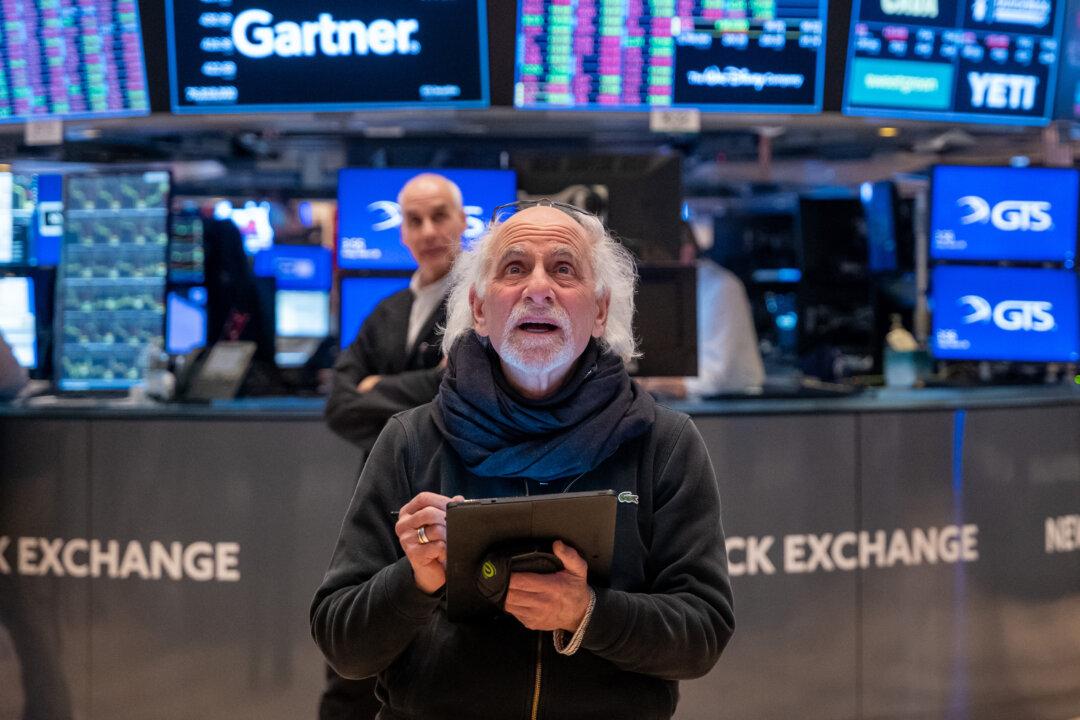The Dow Jones Industrial Average dropped more than 2,200 points during Friday morning trading, a day after being down 1,600 points amid a broad swath of tariffs unveiled this week.
Aside from the Dow drop, the Nasdaq Composite shed more than 5.9 percent on Friday, following a 6 percent drop a day earlier. The S&P 500 also saw a more than 5.9 percent decline in the morning period, following a 4.84 percent drop on Thursday. The volatility index, or VIX, was also up by 45 percentage points.





